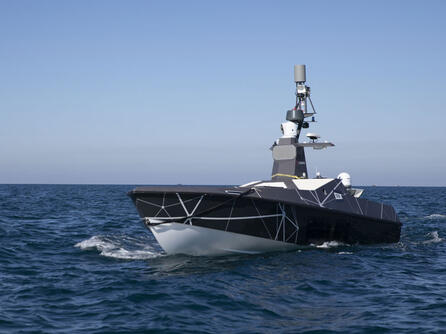That work culminated into a series of sea trials that started in June 2022 and completed on August 29, 2022. Upon final acceptance by the Navy, USNS Apalachicola, Spearhead-class Expeditionary Fast Transport (EPF 13) will be the largest autonomous-capable platform in the Navy inventory, having L3Harris’ ASView installed and supporting operational missions.
During USNS Apalachicola’s sea trials L3Harris’ autonomy was successfully demonstrated. Apalachicola completed over 120 hours of autonomous navigation compliant with the International Regulations for Prevention of Collision at Sea (COLREGS).
Apalachicola was presented with a series of scenarios in which ASView autonomously maneuvered the vessel in accordance with COLREGS, resulting in Apalachicola safely and successfully maneuvering to ensure COLREGS-compliant.
Apalachicola was able to demonstrate autonomous “station keeping,” where Apalachicola was able to match the course and speed of another vessel. The General Dynamics’ built FutureWaves and a hull-monitoring system were incorporated by Austal USA and integrated with ASView by L3Harris, which allowed the vessel to navigate around, through or in response to varying sea states and weather conditions.
L3Harris was also able to integrate an acoustic sensor, McQ Sonowatch, to detect maritime sounds, such as a ship's horn, increasing the COLREGS-compliant capability.
The EPF class of vessels are operated by the Navy’s Military Sealift Command and are designed to transport 600 short tons of military cargo 1,200 nautical miles at an average speed of 35 knots. The ship can operate in shallow-draft ports and waterways, interfacing with roll-on/roll-off discharge facilities and on/off-loading the Abrams main battle tank. EPFs are shallow draft, commercial-based, catamaran designed for rapid, intra-theater transport of personnel and equipment. The EPF’s high speed, shallow draft, and ability to load/unload in austere ports enables maneuver force agility in achieving positional advantage over intermediate distances without reliance on shore-based infrastructure.





